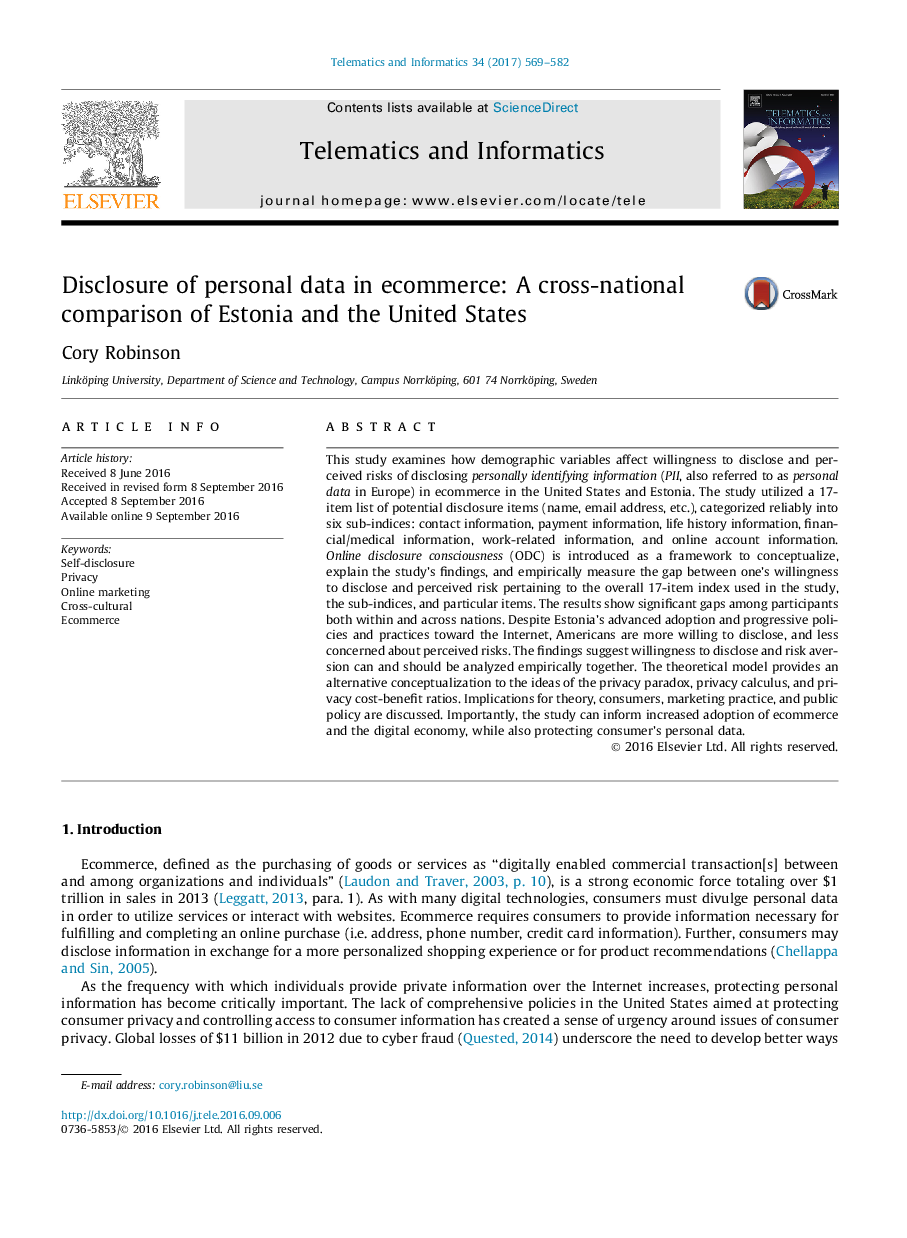ترجمه فارسی عنوان مقاله
افشای اطلاعات شخصی در تجارت الکترونیک: مقیاس ملی بین استونی و ایالات متحده
عنوان انگلیسی
Disclosure of personal data in ecommerce: A cross-national comparison of Estonia and the United States
| کد مقاله | سال انتشار | تعداد صفحات مقاله انگلیسی |
|---|---|---|
| 134274 | 2017 | 14 صفحه PDF |
منبع

Publisher : Elsevier - Science Direct (الزویر - ساینس دایرکت)
Journal : Telematics and Informatics, Volume 34, Issue 2, May 2017, Pages 569-582
ترجمه کلمات کلیدی
افشای خود، حریم خصوصی، بازاریابی آنلاین، فرهنگی متقابل، تجارت الکترونیک،
کلمات کلیدی انگلیسی
Self-disclosure; Privacy; Online marketing; Cross-cultural; Ecommerce;

